Rt. Hon. Najeem Folasayo Salam: The Quiet Strategist From Ejigbo And His Governorship Prospects By Henryrich Ojo Rt. Hon. Najeem Folasayo Salam, the former Speaker of the Osun State House of Assembly, stands today as one of the most respected and disciplined political figures to emerge from Osun West. Born in Ejigbo town, Salam’s political
Rt. Hon. Najeem Folasayo Salam: The Quiet Strategist From Ejigbo And His Governorship Prospects By Henryrich Ojo

Rt. Hon. Najeem Folasayo Salam, the former Speaker of the Osun State House of Assembly, stands today as one of the most respected and disciplined political figures to emerge from Osun West. Born in Ejigbo town, Salam’s political journey is one of quiet determination, loyalty, and strategic foresight—a journey that has made him a formidable name in the state’s political landscape.
From Ejigbo Roots to State Prominence
Najeem Salam’s story begins in Ejigbo, where his early exposure to community service nurtured his passion for grassroots development. His academic background in political science later equipped him with both theoretical and practical tools for leadership. His political rise was gradual, anchored on discipline, consistency, and an unbroken bond with the people.
APC Challenges Governor Caleb Mutfwang To Name Those Who Pressured Him To Defect From PDP
In 2011, he was elected to the Osun State House of Assembly under the then Action Congress of Nigeria (ACN). Within months, his colleagues found in him the rare qualities of patience and balance—traits that earned him the Speakership of the 5th Assembly, a position he held for eight unbroken years. During that time, Salam presided over one of the most stable legislative periods in the state’s democratic history.
A Model of Quiet but Effective Leadership
Unlike many politicians driven by drama and noise, Salam’s leadership was anchored on humility and quiet efficiency. His speakership saw the passage of crucial laws that strengthened local governance, improved fiscal transparency, and advanced education and health reforms. He maintained a cordial relationship with then-Governor Rauf Aregbesola while safeguarding legislative independence—an equilibrium that few Assemblies in Nigeria have managed.
Beyond legislation, Salam cultivated personal relationships across political divides. His ability to remain calm in the face of political storms earned him the nickname “the gentleman of Osun politics.”
Grassroots Strength and Political Machinery
Rt. Hon. Salam’s strongest asset remains his deep grassroots connection. In Ejigbo and across Osun West, he commands organic loyalty that transcends party lines. He is respected not only as a former speaker but also as a philanthropist and consensus-builder who invests in people rather than publicity.
His quiet network of supporters spans the civil service, traditional institutions, and youth organizations. Even after leaving office in 2019, Salam has remained active at the community level—sponsoring education programs, offering scholarships, and supporting local farmers and artisans. This social capital forms the foundation of his enduring political strength.
Prospects Under the ADC Platform
Should Najeem Salam contest the Osun governorship under the African Democratic Congress (ADC), he would bring to the table a blend of integrity, experience, and grassroots credibility. However, the challenge lies in the structural weakness of smaller parties like the ADC in Osun’s current political context.
The ADC, though ideologically appealing, lacks the statewide machinery and financial resources to compete head-to-head with the two dominant blocs—the ruling People’s Democratic Party (PDP) led by Governor Ademola Adeleke and the All Progressives Congress (APC), which retains a strong federal presence and deep-rooted local structures.
For Salam, therefore, victory would depend on his ability to forge strong alliances—particularly among disenchanted members of both the PDP and APC. His personal reputation could attract technocrats, youth groups, and neutral voters seeking a moderate alternative to the two big parties. If he successfully positions his campaign as a “clean-hands, people-first movement,” he could leverage public fatigue with elite politics to build momentum.
Facing the Incumbent Governor Adeleke
Governor Ademola Adeleke remains a popular figure in Osun politics, especially in Osun West, where his family has deep roots. Adeleke’s populist style, welfare programmes, and strong media presence make him a formidable incumbent. Yet, his administration has also drawn criticism over issues of governance depth, fiscal management, and alleged patronage politics.
Salam’s calm, intellectual, and technocratic image could appeal to voters seeking substance over showmanship. His ability to engage policy debates and his record of integrity could expose Adeleke’s vulnerabilities in governance credibility. However, challenging an incumbent requires massive resources and unified opposition—two areas where Salam would need strategic alliances and funding support.
The APC Factor and Federal Influence
The APC remains a potent force in Osun, despite losing power in 2022. Backed by federal influence and experienced political operators, the party is preparing to reclaim the state in the next election. Any ADC candidate, including Salam, must therefore navigate the triangular contest—balancing between PDP incumbency and APC’s formidable comeback strategy.
Salam’s advantage is that he retains goodwill within the APC despite his current ADC affiliation. Many old allies in the progressive camp still see him as a trusted figure. Should he secure tacit backing from certain APC blocs or influential leaders seeking a neutral front against Adeleke, his candidacy could become a rallying point for disaffected forces.
Can He Withstand the Two Giants?
Realistically, contesting under the ADC against an incumbent PDP and a resurgent APC will be an uphill battle. But politics, especially in Osun, is fluid. With his personal integrity, deep roots, and issue-based politics, Najeem Salam could emerge as a moral and intellectual alternative capable of shifting the conversation from patronage to performance.
His best path to victory would be building a broad coalition of reform-minded politicians, youth groups, and neutral stakeholders who desire a quieter but more competent leadership. Even if he doesn’t clinch the governorship, his campaign could reposition him as a central figure in future power negotiations in Osun.
Rt. Hon. Najeem Folasayo Salam’s political journey embodies patience, principle, and purpose. From Ejigbo’s grassroots to the corridors of power in Osogbo, he has proven that leadership can be dignified and effective. If he chooses to run for governor under the ADC, his challenge will not be about credibility but capacity—how to translate goodwill into votes in a field dominated by financial and structural giants.
Still, in the chessboard of Osun politics, never underestimate the quiet player. Salam has shown time and again that power does not always roar—it sometimes whispers.



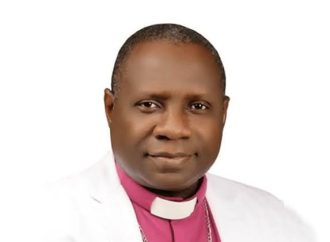
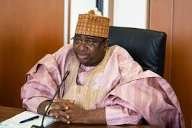
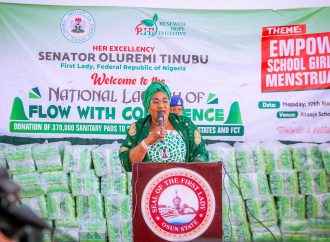
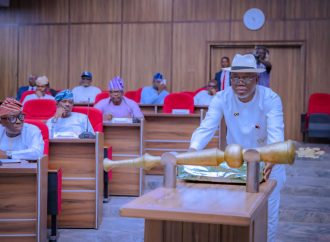

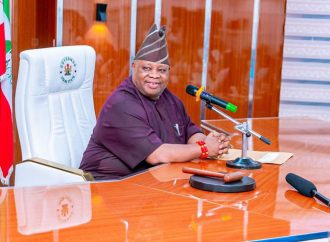


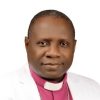
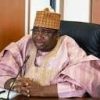
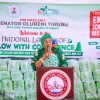
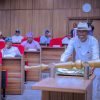





Leave a Comment
Your email address will not be published. Required fields are marked with *